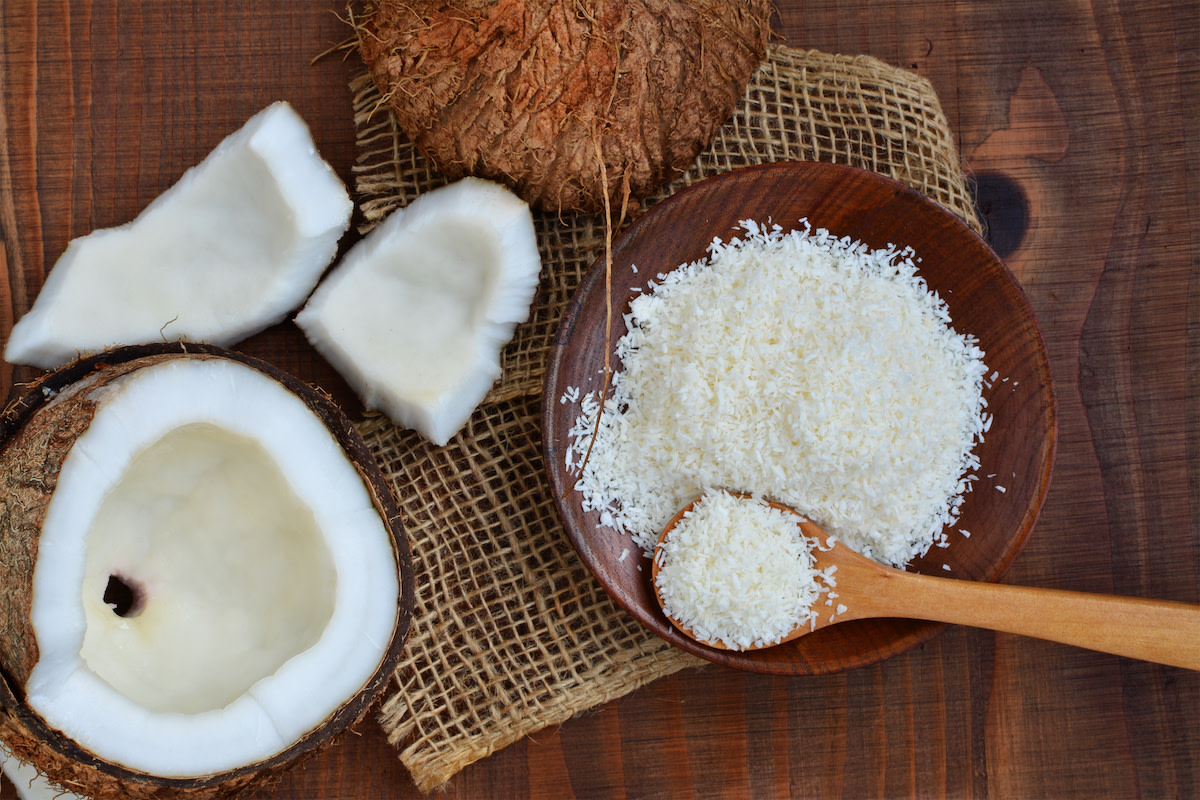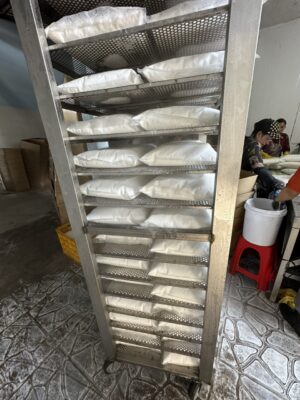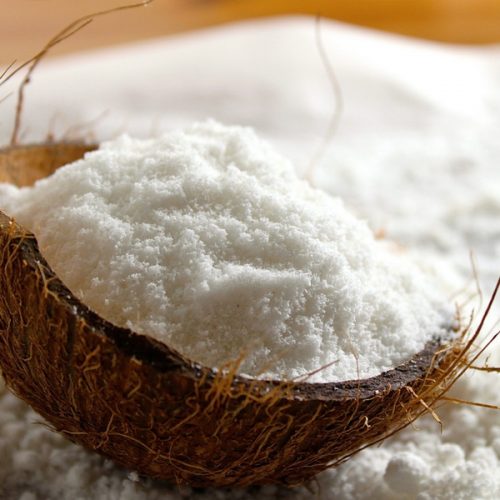In today’s global food supply chain, product quality and safety are non-negotiable. For businesses sourcing desiccated coconut, verifying supplier credibility through internationally recognized certifications is essential. Whether you’re a wholesaler, food manufacturer, or retailer, understanding these certifications ensures you’re getting not only high-quality coconut products but also ethical, sustainable, and compliant sourcing.

Why Certifications Are Critical in the Desiccated Coconut Industry
Certifications serve as third-party validation of a supplier’s practices. They reflect standards in food safety, organic agriculture, labor rights, environmental protection, and more. For desiccated coconut products, these certifications reassure buyers that the coconut has been harvested, processed, and packaged under strict protocols. They also help companies meet their own market regulations and consumer expectations.
Let’s explore the key certifications you should look for when evaluating a desiccated coconut supplier.
1. ISO 22000 / HACCP: Food Safety Management
One of the most important certifications for any food-grade desiccated coconut supplier is ISO 22000 or HACCP. These frameworks ensure that the food products are free from physical, chemical, and biological hazards at every stage of production.
Benefits to Buyers:
- Ensures hygiene and safety in food handling and processing.
- Reduces risk of food recalls and customer complaints.
- Builds trust with B2B clients and retailers.
2. Organic Certification (EU Organic, USDA Organic, JAS, etc.)
If you’re seeking organic desiccated coconut, your supplier must be certified by an accredited organic body. These certifications ensure that coconuts are grown without synthetic pesticides, fertilizers, or GMOs.
Benefits to Buyers:
- Taps into the health-conscious and premium market.
- Assures clean-label ingredients for your end products.
- Facilitates entry into organic-certified retail chains.
3. Fair Trade Certification
Fair Trade focuses on ethical sourcing practices. It ensures fair wages, safe working conditions, and community support for farmers and workers in developing countries.
Benefits to Buyers:
- Aligns your brand with ethical practices.
- Appeals to conscious consumers and partners.
- Encourages sustainable agricultural development.
4. Kosher and Halal Certifications
For distribution in regions or markets where religious dietary laws apply, desiccated coconut should carry Kosher or Halal certification. These assure buyers that the product complies with specific religious standards.
Benefits to Buyers:
- Expands access to Middle Eastern, Jewish, and Southeast Asian markets.
- Validates purity and quality of the product.
- Simplifies compliance with import regulations in certain regions.
5. BRCGS / FSSC 22000 (Global Food Safety Initiative – GFSI)
These high-tier certifications are often mandatory for suppliers to large multinational retailers and food brands. They include rigorous food safety and quality control measures for desiccated coconut processing facilities.
Benefits to Buyers:
- Ensures globally recognized safety standards.
- Reduces supplier vetting time.
- Enhances your own brand’s reputation for safety and compliance.

6. SMETA / SEDEX (Ethical Audits)
These audits cover ethical sourcing, labor standards, health and safety, and environmental sustainability. They ensure that your desiccated coconut supplier operates transparently and responsibly.
Benefits to Buyers:
- Prevents reputational risk from unethical labor practices.
- Supports ESG (Environmental, Social, Governance) compliance.
- Meets buyer requirements in socially conscious markets.
7. Non-GMO Certification
Although coconuts are naturally non-GMO, a Non-GMO certification gives added assurance, especially in health-conscious markets such as the US and Europe.
Benefits to Buyers:
- Meets labeling laws and consumer expectations.
- Strengthens marketing claims for clean-label products.
- Adds competitive advantage in health food markets.
8. Gluten-Free Certification
Desiccated coconut is naturally gluten-free, but having an official certification can be crucial for buyers producing allergy-sensitive foods.
Benefits to Buyers:
- Ensures allergen safety for gluten-sensitive consumers.
- Opens up market segments for health and specialty diets.
9. Sustainability Certifications (Rainforest Alliance, etc.)
Environmental impact is becoming a top concern for global buyers. Certifications that prove sustainable farming and eco-friendly practices add significant value.
Benefits to Buyers:
- Aligns with corporate sustainability goals.
- Reduces carbon footprint of your supply chain.
- Appeals to environmentally conscious customers.

How to Verify a Supplier’s Certifications
Don’t just take a supplier’s word for it. Ask for scanned copies of current certificates and verify them with the issuing organizations. Some platforms, like SEDEX or BRCGS, allow you to check certifications online. At VIA, all desiccated coconut certifications are transparently shared and regularly updated for our global partners.
What Sets VIA Apart?
Vietnam International Agriculture (VIA) is a trusted exporter of premium desiccated coconut, with a commitment to quality, traceability, and sustainability. We hold multiple international certifications, including ISO 22000, USDA Organic, Fair Trade, and more, ensuring our clients receive safe and ethically produced coconut products.
Our facilities meet the highest food safety and hygiene standards, and we perform routine audits to maintain compliance with global markets. We are not just a supplier—we are your long-term partner in reliable coconut sourcing.

Choosing the Right Partner: What Else to Look For
While certifications are essential, they aren’t the only indicators of a great supplier. When evaluating a desiccated coconut partner, also consider:
- Years of Experience: A company with a proven track record in coconut exports is more likely to handle your logistics, quality control, and international compliance needs efficiently.
- Supply Chain Transparency: A supplier who can provide visibility into where and how coconuts are sourced can help you maintain ethical standards and sustainability claims.
- Technical Support: Look for partners who are proactive in sharing COAs (Certificate of Analysis), batch tracking, or customized specifications.
- Customization and Packaging Options: Buyers often need private label options or unique packaging sizes for retail and bulk use. Ensure your supplier can meet those needs.
- Factory Visits & Audits: A transparent supplier will welcome third-party audits or buyer inspections. This speaks volumes about their confidence in operations and compliance.
- Global Market Experience: Suppliers with existing clients in your region or market segment are more likely to understand your needs and compliance requirements.
Choosing a reliable desiccated coconut supplier with the right certifications and a buyer-centric approach is crucial for maintaining brand reputation, ensuring product consistency, and scaling efficiently. Take the time to evaluate not just paperwork but also production capabilities, service level, and values alignment. The right supplier will be a long-term asset to your business.

Get Certified Quality with VIA
Partner with VIA and gain access to premium desiccated coconut products backed by the certifications that matter. Whether you’re looking for organic, halal, fair trade, or gluten-free, we have you covered.
Contact Us Today:
☎ Phone/WhatsApp/WeChat: +84 931442377
📧 Email: admin@vietnam-coconut.com
🏠 Website: www.vietnam-coconut.com


 Tiếng Việt
Tiếng Việt 中文 (中国)
中文 (中国)